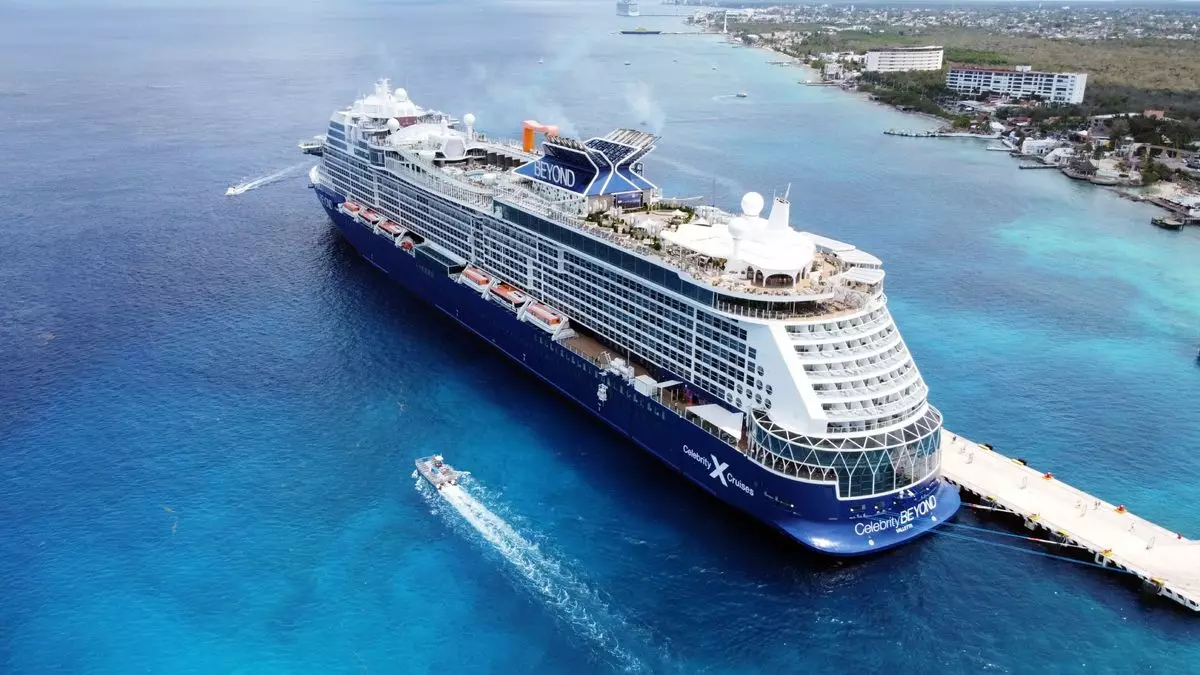The recent decision made by Mexico’s Congress to impose a $42 cruise passenger tax has sent waves of concern throughout the cruise industry, especially concerning the repercussions it could have on Mexico’s tourism economy. This development has the potential to significantly alter the dynamics of cruise shipping in the region, making it imperative to analyze the various ramifications involved.
Within the cruise industry, the news of the tax has generated a substantial backlash, particularly from influential executives who recognize how this decision could impact demand for Mexico as a cruise destination. Michele Paige, the CEO of the Florida-Caribbean Cruise Association (FCCA), highlighted that this tax effectively makes cruise tourism in Mexico 213% more expensive compared to the average Caribbean port. Such an increase in costs could lead to reduced consumer interest and a potential decline in passenger numbers.
The FCCA pointed out that the cruise ports in Mexico collected $62.6 million in port fees during the previous cruise year. The new tax, however, can significantly discourage potential travelers who may opt for cheaper alternatives in other Caribbean destinations. Additionally, with an anticipated flood of over 10 million cruise passengers and approximately 3,300 cruise ship calls expected in 2025, this tax imposes a significant hurdle that could disrupt established traffic patterns to Mexico.
Focusing specifically on Quintana Roo—a state that heavily relies on cruise tourism—reveals the deeper implications of this tax. The FCCA has stated that cruise tourism constitutes about 40% of Quintana Roo’s GDP. The local economy is intricately linked to the influx of tourists that cruise lines bring, with direct contributions amounting to about $1 billion annually, creating over 20,000 jobs while generating upwards of $200 million in wages.
The potential reduction in cruise passengers due to the tax is a worrying prospect for Quintana Roo’s economy. Significantly fewer port calls could lead to decreased spending in local businesses, diminishing the economic vitality that cruise tourism has historically provided. Areas such as Cozumel and Costa Maya, which thrive on tourist visits, face threats not only to their financial prospects but also to their employment rates and social well-being.
Beyond the immediate financial consequences, the FCCA indicated that the new tax could jeopardize billions of dollars in planned investments in Mexico’s cruise industry. These include initiatives aimed at revitalizing regions like Acapulco, developing new tourist destinations, and employing more Mexican workers within the maritime sector. The tax could sway cruise lines to reconsider these investments, especially when faced with an unpredictable downturn in visitor numbers.
Paige emphasized the importance of a cooperative relationship between Mexico and the cruise industry, lamenting the lack of consultation prior to this tax’s approval. The decision appears to have been rushed, leaving little room for dialogue between lawmakers and industry stakeholders. Such decisions cannot be made unilaterally without considering the broader repercussions involved for mutual stakeholders.
The $42 cruise passenger tax, while perhaps aimed at generating revenue, raises serious concerns over the long-term sustainability of Mexico’s cruise tourism. As the FCCA notes, without proper consultation and dialogue, the implications of such policies could undermine not just the cruise industry but also the local economies relying on them. To safeguard against potential economic decline, it is crucial for Mexican lawmakers to revisit this decision and foster discussions with cruise industry leaders, ensuring that both parties can optimize the benefits of cruise tourism for everyone involved. Only through collaboration can mutual interests be preserved, allowing both the tourism sector and local communities to thrive in the years to come.


Leave a Reply